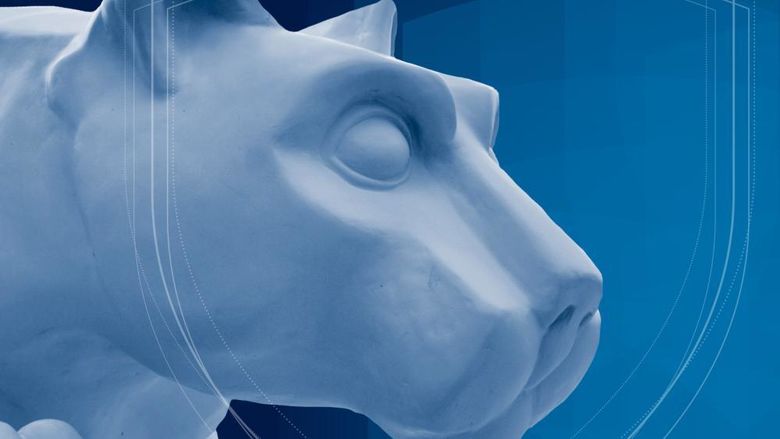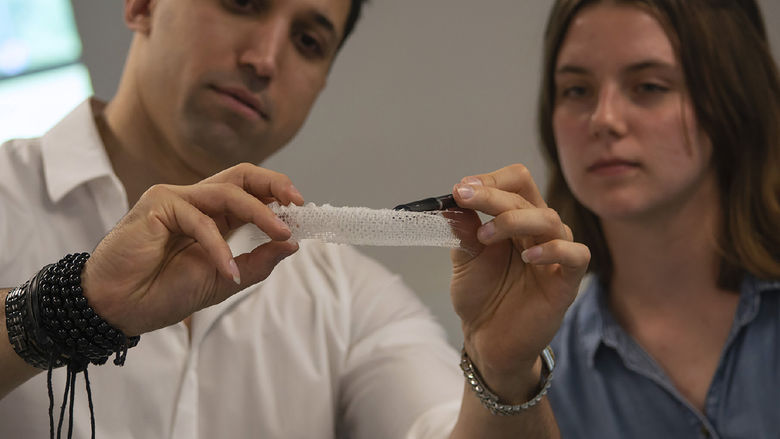UNIVERSITY PARK, Pa. — Matthew Woessner, associate professor of political science and public policy at Penn State Harrisburg, is the winner of the 2019 McKay Donkin Award.
Established in 1969 in honor of the late McKay Donkin, who served as vice president and treasurer of the University from 1957 to 1968, the award is presented to a full-time member of the faculty or staff or to a retiree who has contributed most to the “economic, physical, mental or social welfare of the faculty” of the University. The contribution should be for duties or services above and beyond the recipient’s regularly assigned duties.
Colleagues say Woessner deserves recognition for “service geared toward advocacy for those who do the everyday work to make Penn State a premier institution” and for being “a sounding board for, a representative of, and a mentor to his faculty colleagues.”
“Matthew always looked at the impacts of these changes from the perspective of how they would affect the role of Harrisburg faculty members,” a colleague said. “He has always believed that the heart of the University is the teaching, research, and service undertaken by the faculty, and that any distraction from that mission is detrimental to the students.”
In 2013 as a freshman University Faculty Senator, Woessner organized the opposition to the controversial “Take Care of Your Health” wellness initiative. His efforts were instrumental in reversing the policy which would have levied $1,200 surcharges on employees who declined to submit to biometric screening or complete a WebMD survey. His subsequent work as vice-chair of the faculty benefits committee led to an advisory consultative report, approved by the Senate, that provided a blueprint for more equitable and affordable contributions to employee health benefits.
In his first term of office Woessner was elected the 52nd chair of the University Faculty Senate, serving from 2017-18. During his term as chair, Woessner championed electoral reform to strengthen the Senate’s influence in shared governance; he pressed for promotion-based long term contracts for fixed term faculty, and worked to extend the Senate’s oversight of educational policy including graduate and professional studies.
As University Faculty Senate chair, Woessner made it a priority to find avenues of collaboration between the faculty and the administration. In its Nov. 3, 2017 article “It’s a Tough Job, but Somebody’s Got to Do It” Inside Higher Education noted the considerable improvement in Faculty-Administrative relations since the 2013 wellness controversy. Woessner was quoted as saying “If the Senate is independent and bold enough to be brutally honest, it can really provide a candid window through which the University sees itself.” In promoting a candid dialogue between administrators and the University Faculty Senate, his colleagues argued that Woessner helped to make the institution a more effective forum for promoting the welfare of Penn State faculty.
“Matthew is a special friend and colleague with distinctive attributes,” a colleague said. “He is a brilliant, highly accomplished leader, and is an amazingly devoted colleague who continuously strives for excellence.”





